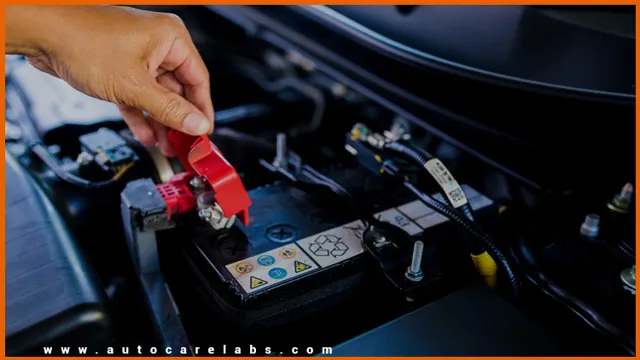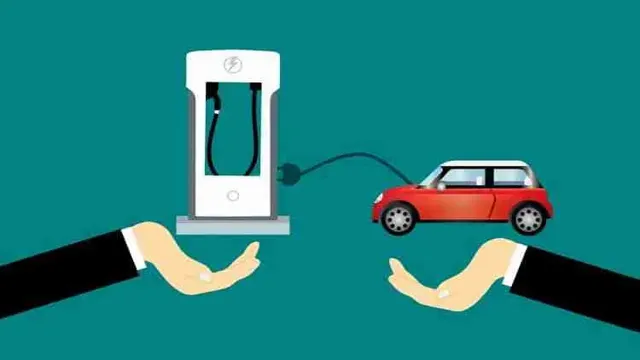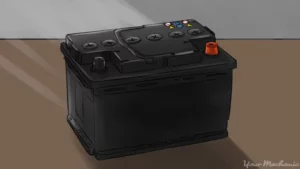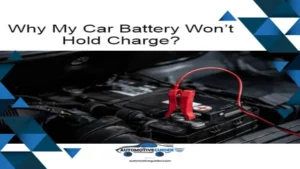Have you ever left your car battery charger on for longer than you intended? You’re not alone. Many car owners have wondered if leaving their charger on too long can cause damage to their battery or even pose a safety hazard. The short answer is yes, leaving your car battery charger on for too long can cause problems, but it all depends on the type of battery charger you’re using and how long you leave it connected.
In this blog post, we’re going to cover everything you need to know about car battery chargers, including how to choose the right one for your needs and how to use it safely and effectively without damaging your battery. So whether you’re an experienced car enthusiast or a newbie looking to learn the basics, this post is for you. So, let’s dive in!
Understanding Car Battery Chargers
“Can you leave a car battery charger on too long?” This is a common question that many car owners ask when it comes to charging their car batteries. The answer is both yes and no. It depends on the type of charger you are using.
If you are using a smart charger, which is designed to automatically turn off once the battery is fully charged, you can leave it connected to the battery for as long as you want without damaging it. However, if you are using a traditional charger, it is important to monitor the charging process and disconnect it once the battery is fully charged. Leaving a traditional charger on for too long can overcharge the battery, which can cause damage over time.
Therefore, it is important to choose the right charger and follow the manufacturer’s instructions to ensure the longevity of your car battery.
Types of Car Battery Chargers
Car Battery Chargers Car battery chargers come in different types and understanding them can help you choose the one that suits your needs. The first type is the trickle charger which delivers a small amount of current over a long period and is best for maintaining battery charge over time. The second type is the float charger which is similar to the trickle charger but has a built-in system to automatically regulate the charging current.
The third type is the smart charger which works by analyzing the battery’s condition and delivering the appropriate amount of current to charge it. This type of charger is efficient and can charge batteries more quickly than the previous two types. The fourth type is the jump starter which is designed to provide a quick boost to a dead battery and get the engine started.
It is portable and can be used on the go. Each type of car battery charger has its advantages and disadvantages, and choosing the right one depends on your specific needs.

How Long Should You Charge Your Car Battery?
When it comes to charging your car battery, you might be wondering how long is too long. Can you leave a car battery charger on for too many hours? The answer is yes. Overcharging your car battery can damage it over time and reduce its lifespan.
It’s important to follow the instructions that come with your specific charger and battery to determine the appropriate charging time. Generally speaking, most car batteries take between 4 and 24 hours to fully charge. Once the battery is charged, it’s best to unplug the charger or disconnect the battery to prevent overcharging.
Remember, while it’s tempting to leave your battery charging overnight, it’s not always the best idea. Keep an eye on it and follow the guidelines to ensure maximum battery performance.
Factors Affecting Car Battery Charging Time
Car battery charging time When it comes to charging a car battery, the length of time depends on several factors. Firstly, the size and type of the battery, as well as its current level of charge, can affect the charging time. A larger battery will generally take longer to charge than a smaller one.
Similarly, a battery that is almost fully discharged will take longer to charge than one that is only partially discharged. The charging rate of the battery charger itself can also impact the charging time. A charger with a higher amperage output can charge the battery faster than a lower output charger.
However, it’s important to note that charging too quickly can damage the battery. It’s recommended to use a charger that offers a gradual and steady charging rate for the best results. Additionally, outdoor temperature can also affect the charging time.
In colder temperatures, the battery may take longer to charge, while warmer temperatures may speed up the process. As a general rule of thumb, it’s best to allow for at least six to eight hours to fully charge a car battery, although this can vary depending on the above factors.
How to Determine the Charging Time for Your Car Battery
When it comes to charging your car battery, there is no one-size-fits-all answer. The charging time for your car battery depends on several factors, such as the size of your battery, the type of charger you are using, and the level of discharge. Generally, it takes around 4-24 hours to charge a car battery fully.
If you have a larger battery, it will take longer to charge, while a smaller battery will charge faster. The type of charger you are using also affects the charging time. A slower charger will take longer to charge your battery, while a faster charger can charge it quickly.
Additionally, if your battery is deeply discharged, it will take longer to charge than a battery that is not completely dead. It is always best to consult your car’s manual or a professional mechanic to determine the exact charging time and ensure that you don’t overcharge or undercharge your car battery. By following the recommended charging time and taking care of your car battery, you can extend its life and avoid costly replacements.
What Happens If You Leave the Charger On Too Long?
If you’re wondering whether you can leave a car battery charger on too long, the answer is yes. Leaving your charger plugged in for too long can lead to overcharging your car battery, damaging it, and even possibly causing a fire. Overcharging a battery can cause the electrolyte solution inside the battery to heat up, and the battery cells can start to leak.
This can ultimately damage your car’s internal components and even put you in a dangerous situation. It’s essential to monitor your battery’s charge level constantly and remove the charger when it reaches its full capacity. Remember, regularly checking on your car battery’s levels will help keep it from being damaged and prolong its lifespan.
Risks Associated with Overcharging a Car Battery
Overcharging a car battery can be a risky move that could lead to serious damages. If you leave the charger on for too long, there’s a high chance that the battery could suffer from an overcharge. Overcharging occurs when the battery is charged beyond its capacity, causing the electrolyte solution inside to heat up and eventually evaporate.
This creates a dangerous situation where the battery could explode or release toxic gases. It may also impact the battery life in the long run, decreasing its overall performance and efficiency. To prevent overcharging, it’s important to keep an eye on the charging process and disconnect the charger once it’s fully charged.
Ignoring this warning could lead to costly repairs, or worse yet, put your safety in danger. So, make sure to take the necessary precautions and avoid overcharging your car battery.
Effects of Overcharging on Car Battery Lifespan
Overcharging a car battery is one of the common mistakes people make when using car chargers. The effect of overcharging on a car battery is devastating, and it can significantly reduce its lifespan. Leaving the charger on too long can cause the battery to become overcharged, which can lead to the release of hydrogen gas.
This can damage the internal components of the battery and cause it to deteriorate quickly. Overcharging can also cause the battery to overheat, which can damage the separators in the battery and result in a short circuit. When a short circuit occurs, it can create a lot of heat and cause the battery to explode.
Therefore, it’s essential to avoid overcharging your car battery to prevent damage and ensure its longevity. Always keep an eye on your charger while it is in use and remove it as soon as it reaches 100% charge. By following these simple tips, you can avoid overcharging your battery and extend its lifespan.
Tips for Safe and Optimal Car Battery Charging
One of the most common questions when it comes to car battery charging is whether you can leave a car battery charger on too long. In short, the answer is yes. Overcharging a car battery can cause significant damage, including accelerating its chances of failure.
To ensure safe and optimal charging, it’s crucial to keep an eye on your charger and battery’s performance while charging. Be sure to follow the manufacturer’s instructions and only use a charger that is compatible with your car battery’s voltage output and size. Additionally, avoid charging the battery in extreme temperatures and keep it away from moisture, as these conditions can affect charging efficacy and your safety.
Lastly, do not leave your battery charging for an extended period and disconnect it once it’s fully charged. As with anything involving your car, taking the proper care and precautions will extend your battery’s life and keep you and your vehicle safe.
Avoiding Overcharging
When it comes to charging your car battery, it’s essential to avoid overcharging to ensure that it lasts longer and performs optimally. Overcharging can lead to damage and shorten the battery’s lifespan, causing you to replace it sooner than you expected. To avoid this, always ensure that the charger you use is compatible with your car battery’s voltage and has an automatic shut-off feature.
It’s a good idea to read the manufacturer’s manual and follow the charging instructions outlined. Additionally, avoid charging the battery for extended periods as this can cause the electrolyte levels to drop, damaging the battery. Always monitor the battery’s temperature and charging progress while charging.
By practicing these tips, you can ensure that your car battery performs at its best and lasts as long as possible.
Maintaining Your Car Battery Charger
Taking care of your car battery charger is important, as it can prolong its life and ensure optimal performance. To begin with, always use the charger according to the manufacturer’s instructions and avoid overcharging your car battery. Regularly check the charger cables and ensure that they are properly connected.
Also, make sure that the charger is clean and free of dust and debris, as they can interfere with the charging process. It’s also advisable to keep the charger in a dry and cool place. Always inspect the charger for any signs of damage like frayed wires, cracks, or loose connections, and replace any defective parts.
Finally, ensure that the charger is stored in a safe and secure location to avoid any accidents or mishaps. By following these tips, you can ensure that your car battery charger remains safe and efficient for years to come.
Conclusion: To Leave or Not to Leave Your Car Battery Charger On?
In summary, the answer to the question “Can you leave a car battery charger on too long?” is a resounding yes. Just like leaving your headphones on full blast for too long can damage your hearing, leaving your battery charger on for an excessive amount of time can damage your car’s battery. So, if you don’t want to burn a hole through your wallet with frequent battery replacements, make sure to unplug your charger once it’s done its job.
After all, a little bit of vigilance today can save you a lot of hassle and expense tomorrow!”
FAQs
Can you leave a car battery charger on too long?
Yes, leaving a car battery charger on for too long can damage the battery and potentially cause it to overheat or explode.
How long should you leave a car battery charger on?
The recommended charging time varies depending on the charger and the battery, but typically ranges from 4 to 24 hours. Check the instructions for your specific charger and battery.
Can leaving a car battery charger on too long damage the alternator?
No, leaving the battery charger on for an extended period of time will not damage the alternator, as the charging process only affects the battery.
Is it safe to charge a car battery while it is still connected to the car?
It is generally safe to charge a car battery while it is still connected to the car, as long as you take proper precautions and follow the instructions for your charger. However, it is recommended to disconnect the battery for safety reasons.
How often should you charge your car battery?
The frequency of charging your car battery depends on a variety of factors, including usage, temperature, and the condition of the battery. However, it is generally recommended to charge your battery at least once every six months.
What is the difference between a trickle charger and a regular charger?
A trickle charger provides a lower level of charging power over a longer period of time, whereas a regular charger provides a higher level of charging power over a shorter period of time. Trickle chargers are typically used for maintaining a battery’s charge, while regular chargers are used for charging a battery that has been fully discharged.
Can a car battery be overcharged?
Yes, a car battery can be overcharged if the charging process is not monitored or if the charger is left on for too long. Overcharging can cause the battery to overheat and potentially explode, so it is important to monitor the charging process and follow the instructions for your charger.






